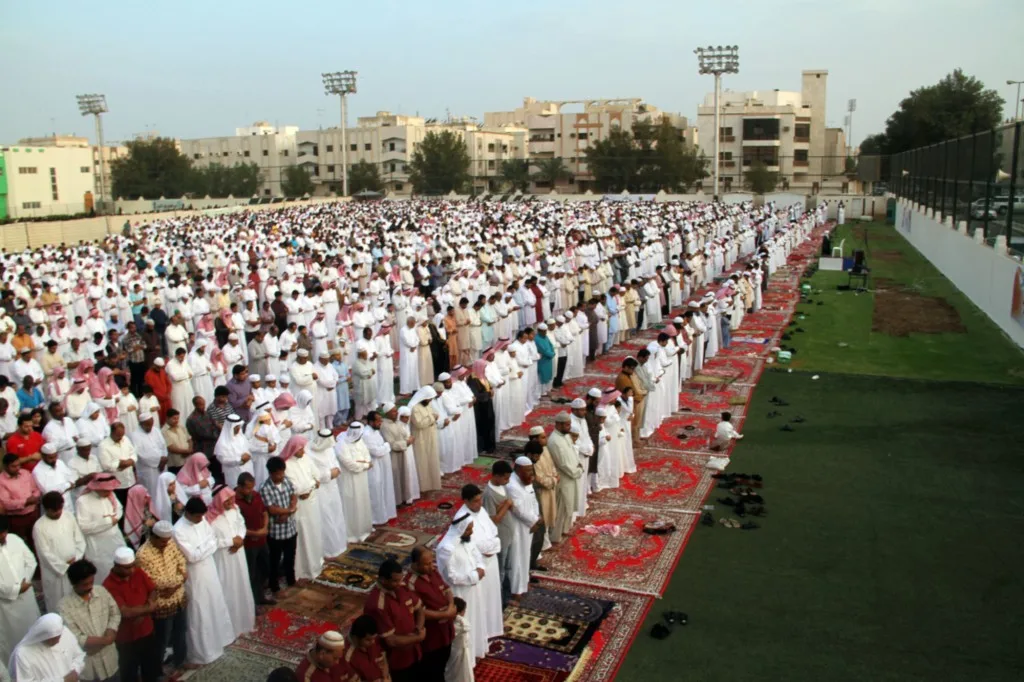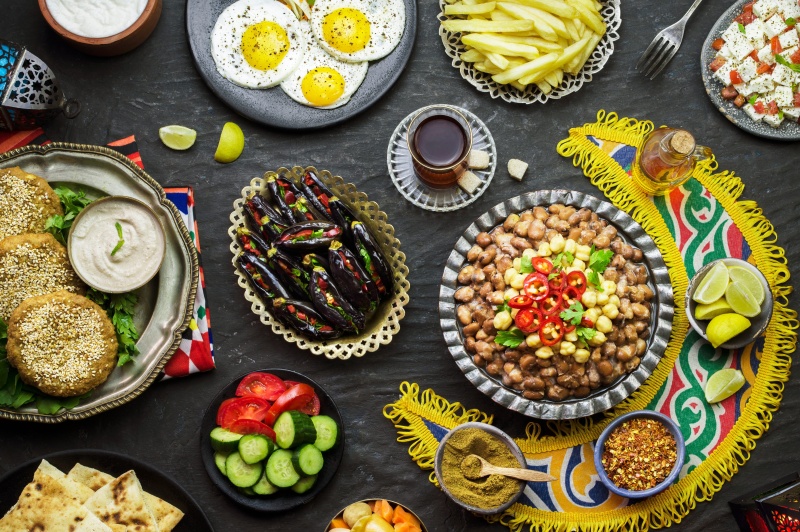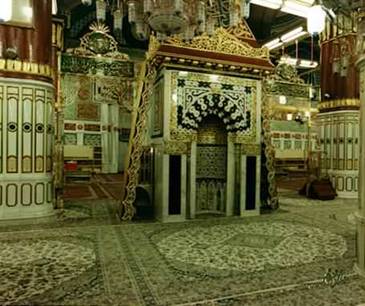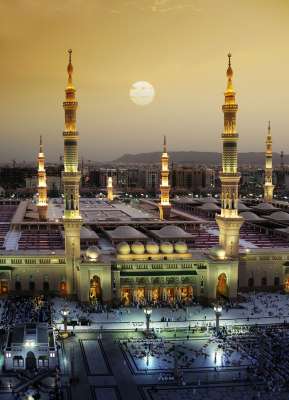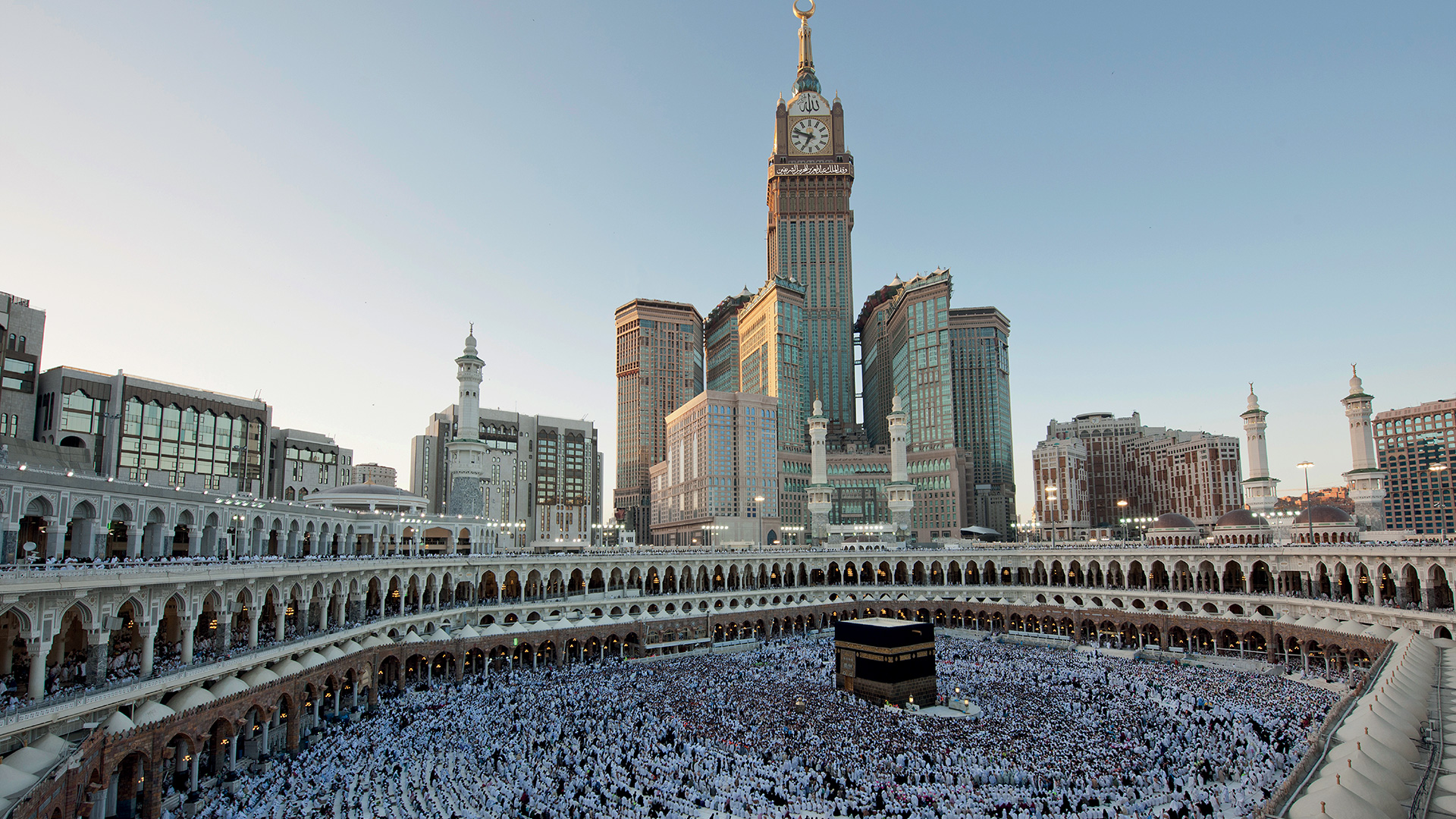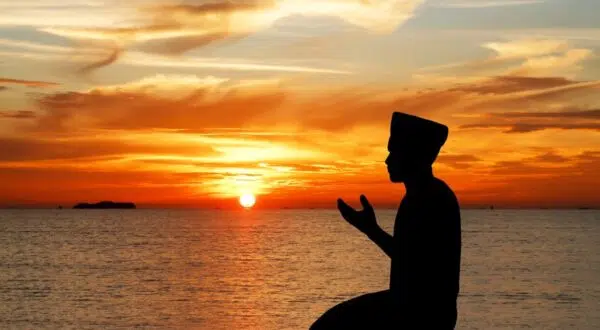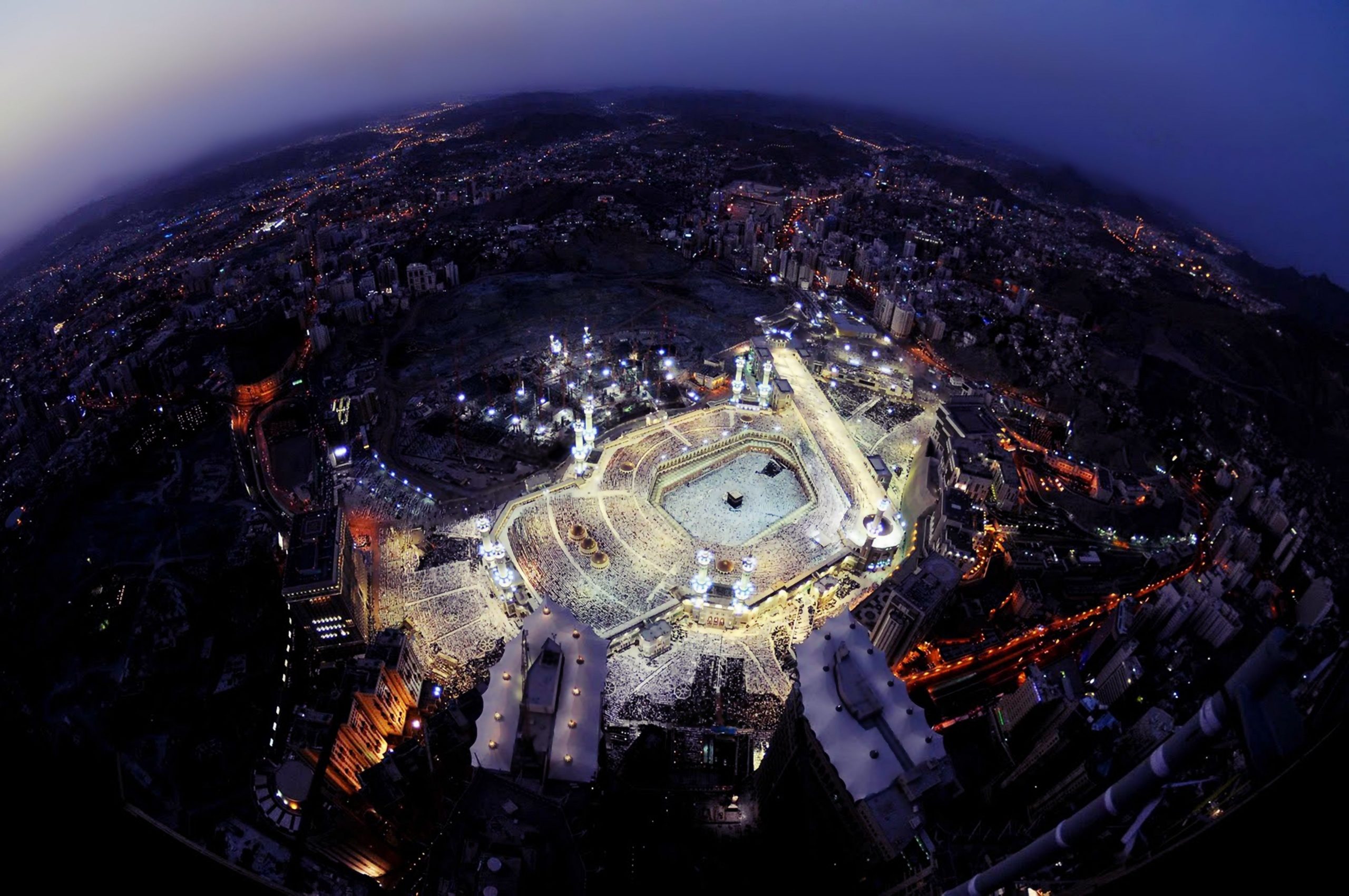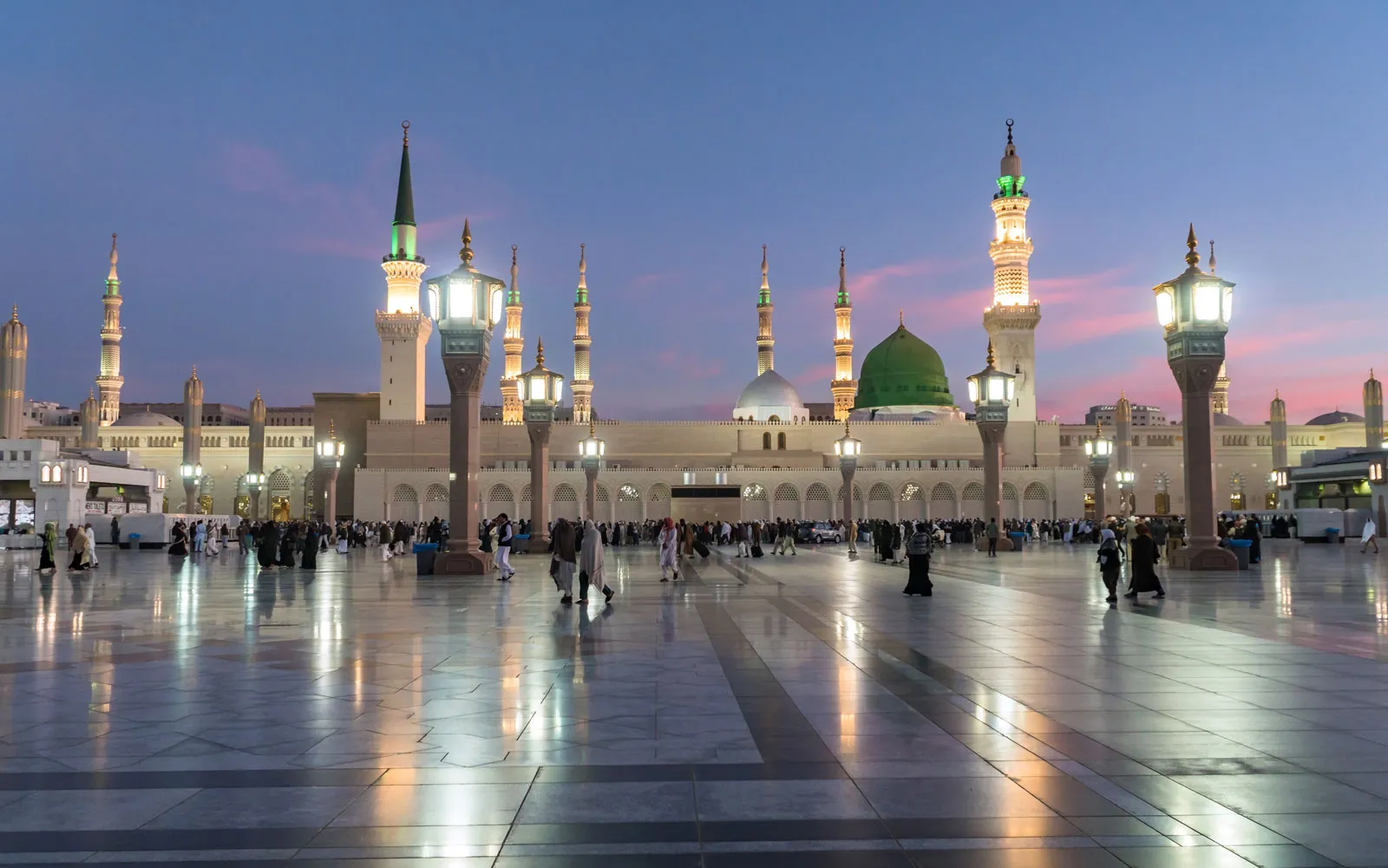Praise be to Allaah. Eid Prayer consists of two Rak’ahs The Eid prayer is one where the imam attends and leads the people in praying two rak’ahs. ‘Umar (may Allaah be pleased with him) said: “The prayer of al-Fitr is two rak’ahs and the prayer of al-Adha is two rak’ahs, complete and not shortened, on the […]
Category: Fasting
Suhur; The Pre-Dawn Meal During Ramadan.
Allah, the Most High, says: ” … Eat and drink until the white thread becomes distinct to you from the black thread of the dawn. Then resume the fast till nightfall … “ [Al-Qur’an 2:187] It was narrated that Adi ibn Hatim, may Allah be pleased with him, said when the following verses were revealed: […]
Advice to Muslims in Ramadhan.
Few Introductory and Complementary Notes by the Translator Ramadhan is an auspicious opportunity for believers to renew their commitment to their Creator and the Sovereign of the Day of Recompense. This commitment must be both outward and inward, so that a Muslim not only recites more Qur’an and offers more units of prayer, but that […]
Manners Of Fasting In Ramadan.
Fasting in Ramadan teaches people how to practice a good manners while dealing with others. And also teaches the reactions when receives insults from others. So Abu Huraira(Allah is pleased with him) narrated, Allah’s messenger said:” Saum( fasting) is a shield(or a screen or a shelter from the Hell-fire) So the person observing Saum(fast) […]
The Spirit And Ramadan.
Every year Muslims from all over the world and from all ethnic and economic backgrounds begin fasting from dawn to sunset every day during a most blessed month in the Islamic tradition, known as Ramadan. But what makes Ramadan a blessed month? Why do Muslims fast during this month? What are the spiritual benefits of […]
Why do Muslims Fast?
These days when most of us who are overweight, many people have tried different kinds of fasting. Some will drink only juice for a day, or eat only fruit, or stay away from any sugar or starches, or leave alcohol for a period of time. Yet, it seems strange to most folks, the idea of […]
The Month of Repentance .
The month of Ramadan is a great opportunity for returning to Allah The Almighty with repentance. It is the month of mercy, erasing mistakes, expiating evil deeds, salvation from Hellfire and attaining Paradise. The fortunate person is he who knows this and hastens to the actions that draw him near to His Lord by turning […]
The Benefits Of Obedience, During and After Ramadan.
People cannot remain exactly as they were during the blessed month of Ramadan, in terms of their regularity and steadfastness in performing certain acts of worship. On the other hand, they must not stop doing good deeds completely and forsake all virtue just because Ramadan is over. It is injudicious to suddenly abandon everything and […]
Why Muslims Love the Month of Ramadan?
Islam uses a lunar calendar—that is, each month begins with the sighting of the new moon, therefore because the lunar calendar is about 11 days shorter than the solar calendar, Islamic months “move” each year. This year (2008) the Islamic month of Ramadan coincides almost exactly with the month of September. For Muslims the coming […]

